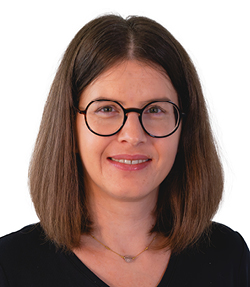Who are your lecturers?

Dr. Teresa Spieß is a Professor of Organizational Behavior and Change Management at the Department of Management, Communication & IT (MCI). Her work focuses on the dynamic interplay between people and technology, with a particular emphasis on shaping and humanizing the Future of Work in the digital age within organizational contexts.

Mag. iur. Julia Waldegger, MSc, is a Lecturer at the Department of Business Administration Online (MCI). She has an academic background in law, political science, and organization studies. Her research focuses on algorithmic management and its consequences. She endeavors to weave themes of responsibility and ethics into her educational approach.

Aleksander Groth, PhD, is a Professor of Digital & Organizational Communication at the Department of Management, Communication & IT (MCI). With a background in Interaction & User Experience Design, his research interests lie in the domain of digital behavior and human-technology interaction, specifically on how digital tools augment, enter, and shape the lifeworlds of humans.

Juliana Pattermann, BA, MA, MSc, is a Junior Researcher at the UNESCO Chair in Futures Capability for Innovation and Entrepreneurship and a Research & Teaching Assistant at the Department of Business Administration Online (MCI). Her research focuses on developing teaching and learning concepts, particularly for promoting "futures literacy."
Mode
On-Campus | Monday till Friday during the day
Assessment
Reflective Learning Journal (100%)